Student Profiles
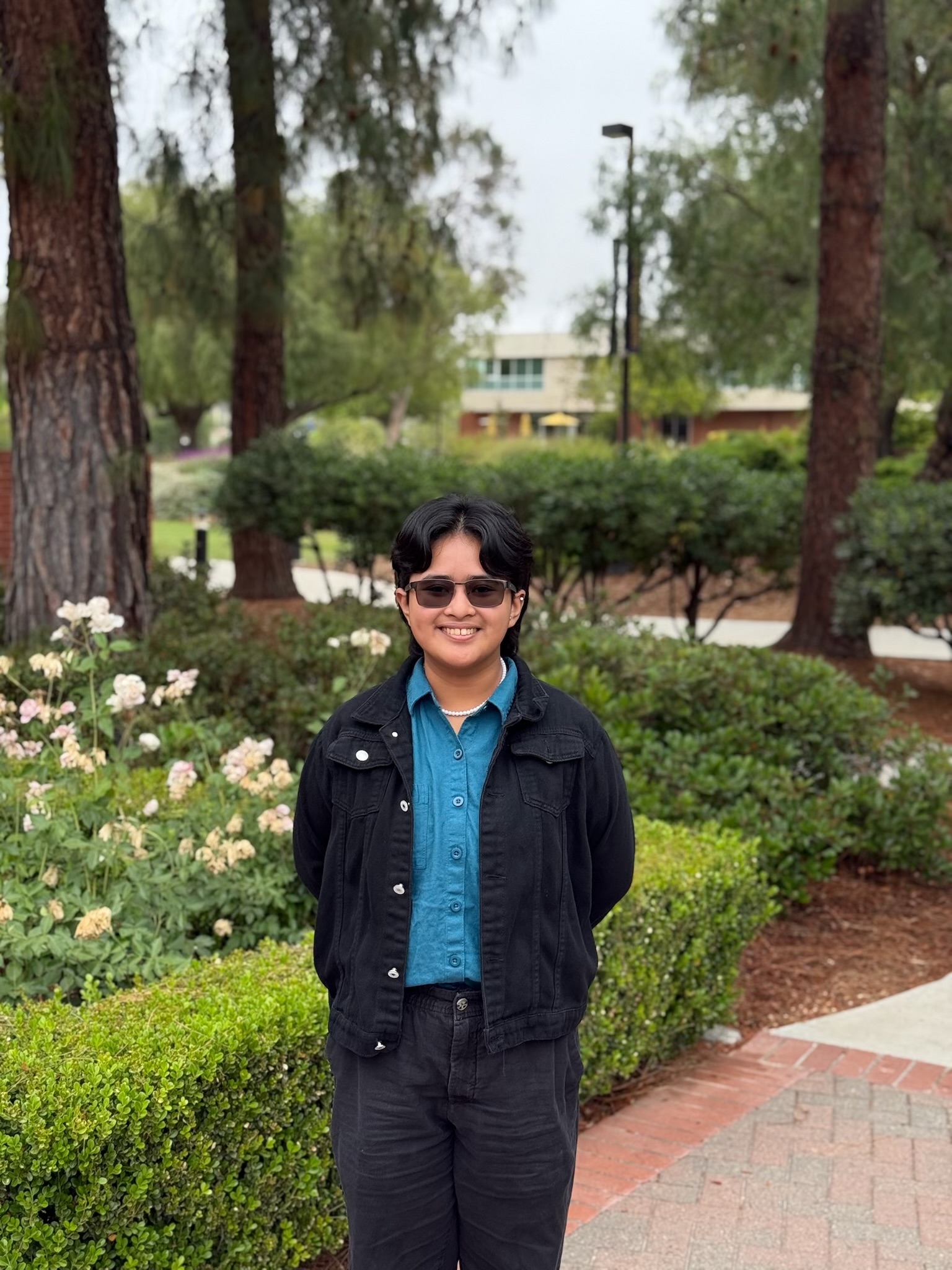
Nevign Angelique Besas '27
Major: Biochemistry
Faculty Mentor: Dr. Chad Barber
Project Title: The Anti-Cancer Effects of Myricetin, A Bioactive Compound from Moringa Oleifera
Research Question: My project explores how Myricetin affects cancer cell apoptosis, migration, and cytokine production. I aim to further investigate its potential as a chemotherapeutic agent.
Importance: While there are existing treatments for cancer, many of such leave patients severely immunocompromised and/or a variety of intense side effects. By looking at plant-based compounds that are common in our everyday diets, such as Myricetin, we hope to find a chemotherapeutic agent that is potent to cancer cells but not as devastating to our healthy cells.
Looking Forward: I am looking forward to leading my own research project (along with my mentor) and
seeing the data and results that I can collect for the research presentations!
After Graduation Plans: Following graduation, I hope to go into graduate school in programs of Immunology or Cancer Biology to further pursue a research career. The McNair Scholars Summer Research Program allows me to gain experience in creating a research plan, conducting experiments, and presenting results, overall leading my own research project. This extensive research experience aids me in becoming a more competitive candidate for graduate school in the near future.

Mia Calderon '26
Major: Psychology with an Emphasis in Sports Psychology Applications
Faculty Mentor: Dr. Jodie Kocur
Project Title: Fostering Inclusion: Autistic College Students' Insights on Social Challenges and University Support
Research Question: My project explores the social experiences of autistic students in college, including the difficulties they face, the supports they find helpful, and recommendations for colleges to better promote social connectedness for neurodiverse students.
Importance: This research is important because it addresses the social struggles of autistic college students, who currently lack adequate support, and it amplifies their voices. The results can be used to develop more effective support programs, fostering a more inclusive and supportive college environment for autistic students.
Looking Forward: I am excited to connect with autistic college students through interviews this summer, as I look forward to hearing their personal stories and gaining a deeper understanding of their experiences.
After Graduation Plans: After graduation, I plan to attend graduate school to get a PhD in Clinical Psychology or a Master's in Sports or Clinical Psychology. This research experience will help me refine my research skills, which are essential for my future academic and professional pursuits.
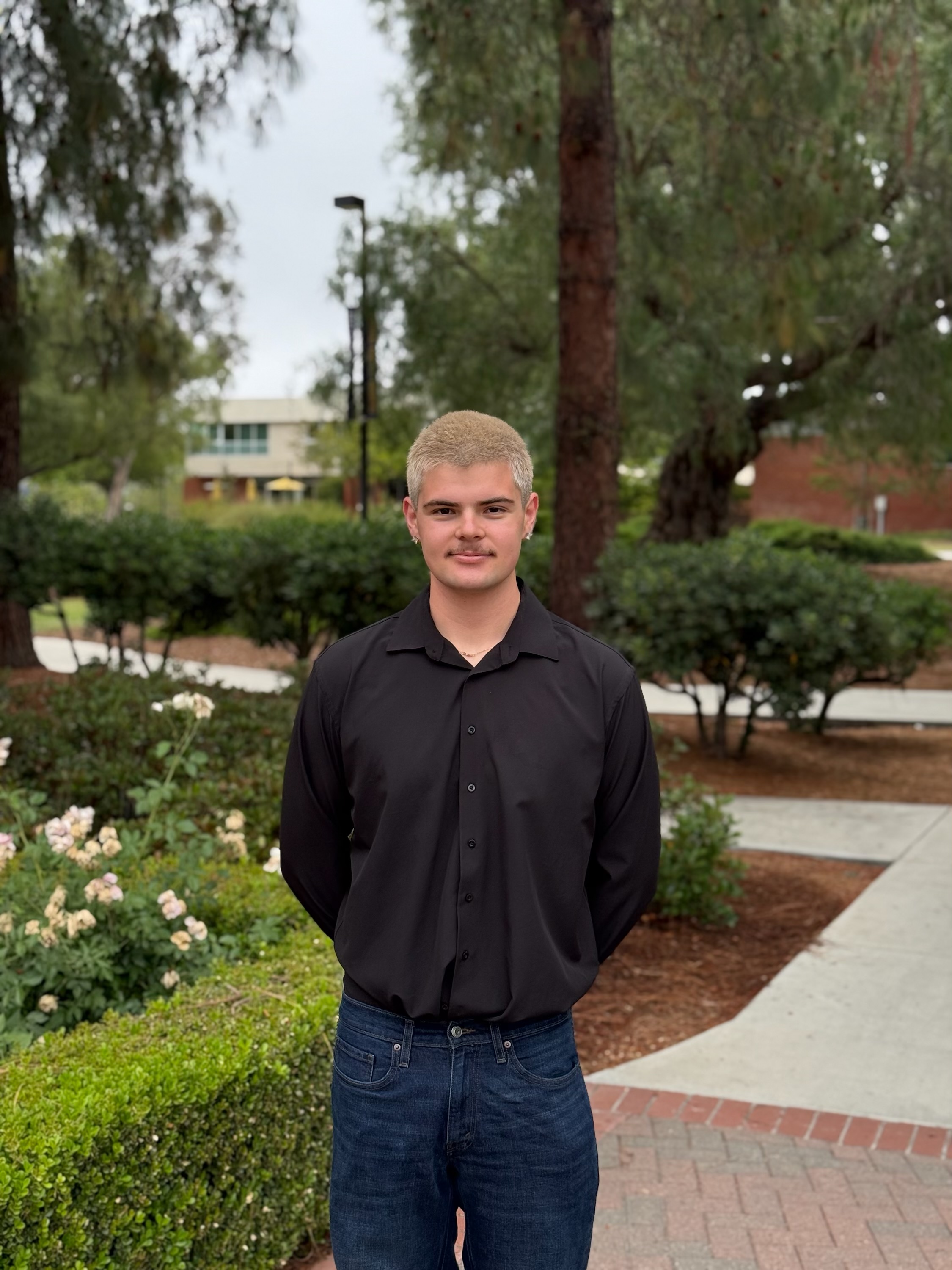
Nicolas Caputo '27
Major: Biological Science
Faculty Mentor: Dr. Chad Barber
Project Title: Investigating the Effects of Berberine Chloride on Cancer Cells
Research Question: This summer, I will be exploring Berberine chlorides' effect on cancer cells through the processes of hemocytometry and flow cytometry to determine cell proliferation, viability, and apoptosis.
Importance: I hope that the evidence from my study further shows how berberine could be an effective complementary treatment to cancer.
Looking Forward: One of the things that I am most excited about this summer in my research process is being able to dorm on campus and have a short commute to the lab allowing me to fully immerse myself in my time in the program. Also berberine is a supplement I currently take, so to learn how it might play a role in anticancer effects is very interesting.
After Graduation Plans: I find myself really interested in medicine/health and I am actively looking for paths that I can take after graduation to enable me to practice/study in those fields. I believe that this research experience will help with my future plans as I am now able to get experience to practice health from a lab setting, where I'm gaining a new perspective on health.
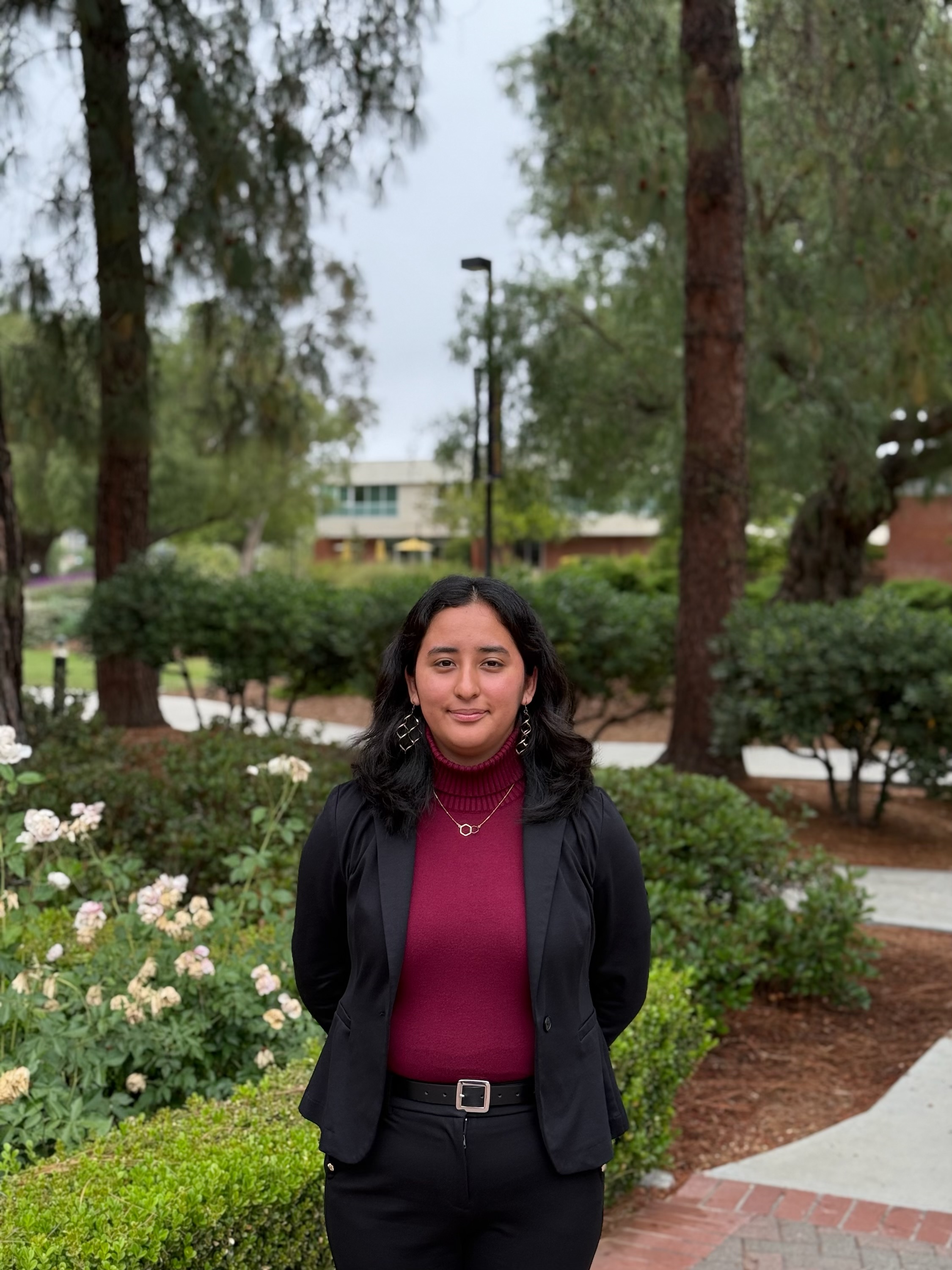
Samantha Ivanez '27
Major: Biochemistry
Faculty Mentor: Dr. Katherine Hoffmann
Project Title: Determining the pH Profile of DesD
Research Question: This summer, I am investigating the activity of DesD, a protein found in pathogenic bacteria, at different levels of acidity to confirm whether or not there is a two-step proton interaction within the DesD mechanism. I wish to represent my data in a pH profile.
Importance: Having a better understanding of the way DesD functions to compete against the beneficial bacteria in our bodies will help us design a future drug to fight bacterial infection. This is especially important to combat bacteria that resist antibiotic treatment.
Looking Forward: Besides getting results, I am excited about gaining exposure to the lab techniques that go into researching proteins and building community with my labmates. I’ve been interested in doing research on proteins and enzymes since my senior year of high school, so I am incredibly excited and grateful to have this opportunity.
After Graduation Plans: After I graduate, I plan to attend graduate school and eventually earn a PhD in Chemistry, Chemical Engineering, or Biochemistry. I wish to become a Chemistry professor and teach at a university. This research experience will help me gain exposure to a laboratory setting, network and find future opportunities, and narrow down my research interests within chemical science.
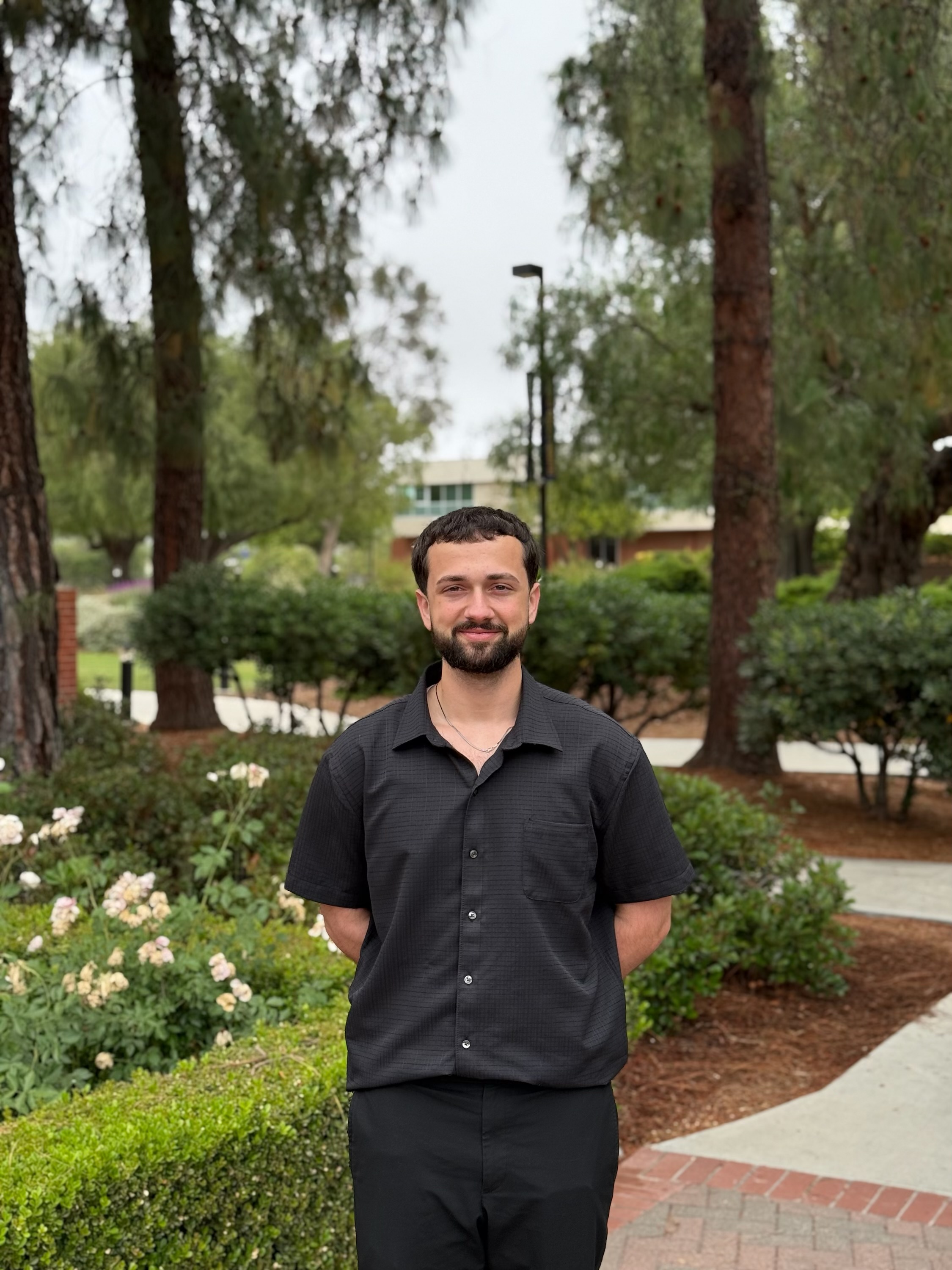
Takoda Lakpour '27
Major: Biological Science
Faculty Mentor: Dr. Dana Harmon
Research Project:Uncovering efflux regulators that control the expression of EmrAB-TolC in Escherichia coli
Research Question:This summer, I am investigating the question of what are other genetic regulators of the multi-drug efflux pump, EmrAB-TolC, in E. coli?
Importance: Bacteria replicate at an exponentially fast rate (~Once per 20 minutes), if just one cell contains resistances to antibiotics it can quickly transfer it to nearby cells, who within a single night can turn into a population in the millions. Therefore, the overusage of antibiotics allows bacteria to rapidly develop resistances that we are currently observing day to day, inherently putting us on a path where we won't be able to fight bacterial infections. Investigating the unknown methods at which bacteria resist antibiotics, we can potentially develop the framework to combat this rising issue.
Looking Forward: I am looking forward to the consistency. During the semester it is very difficult to remain research oriented with all the classes that we may take, so having the time to dive into my research and the literature is very exciting.
After Graduation Plans: I would like to attend a Ph.D program with an emphasis on microbiology. Conducting this research gives me great precedence to work upon when entering grad school.
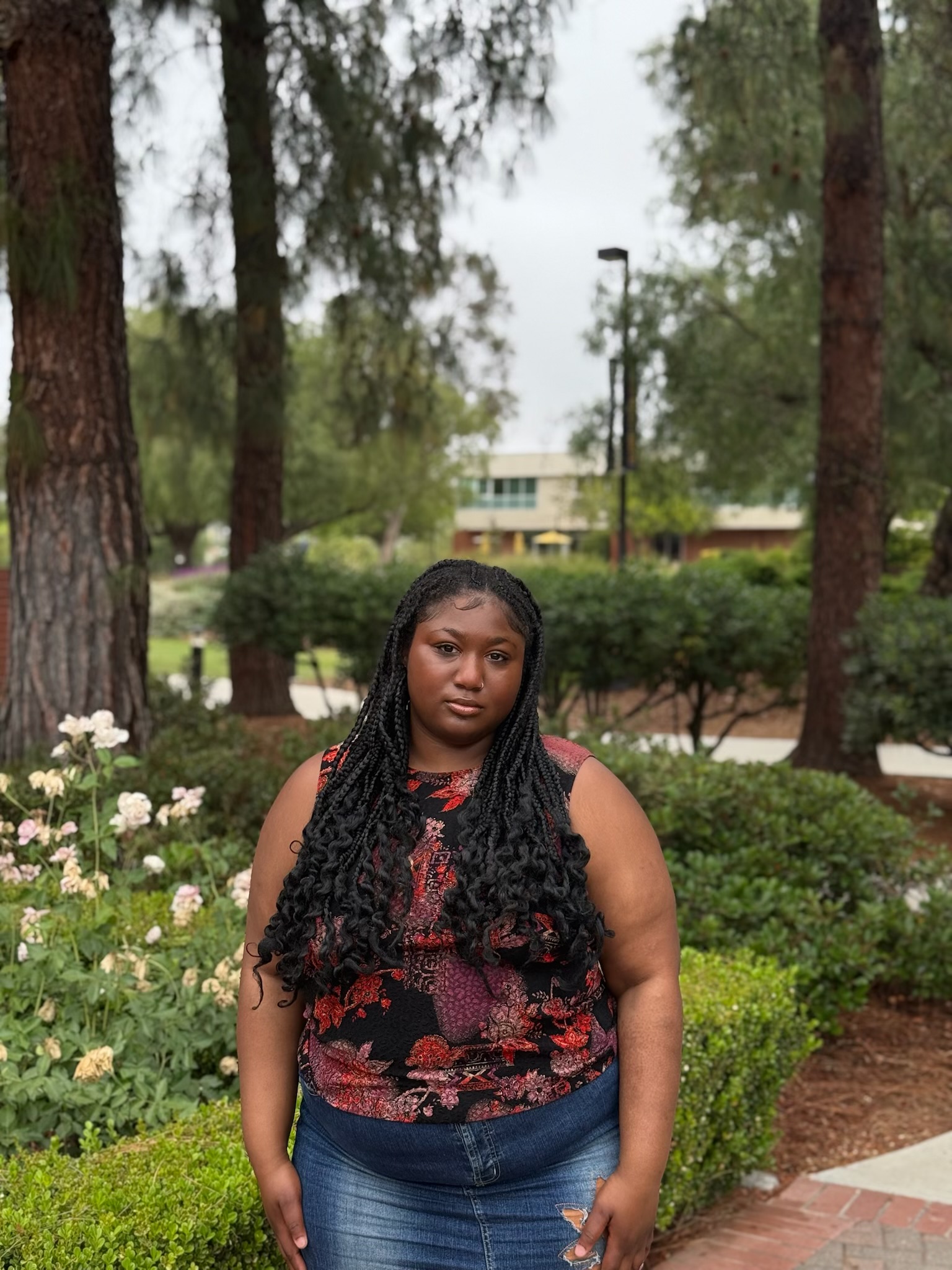
Esther Lazarre '25
Major: Biological Science
Faculty Mentor: Dr. Andrea Huvard
Research Project: Microfibers in Kingsmen Creek
Research Question: What is the spatial distribution of microfibers in Kingsman Creek, and how does this relate to water quality parameters at various sampling sites?
Importance: This research examines the presence of microfibers in a local water body and their potential ecological impact. Microfibers are a prevalent form of microplastic pollution that can threaten aquatic ecosystems and human health. Understanding their distribution contributes to the broader field of environmental science and supports future mitigation strategies.
Looking Forward: Getting experience in field work and developing my own methods.
After Graduation Plans: I plan on either getting my PhD or masters in evolutionary ecology or mammal biology.
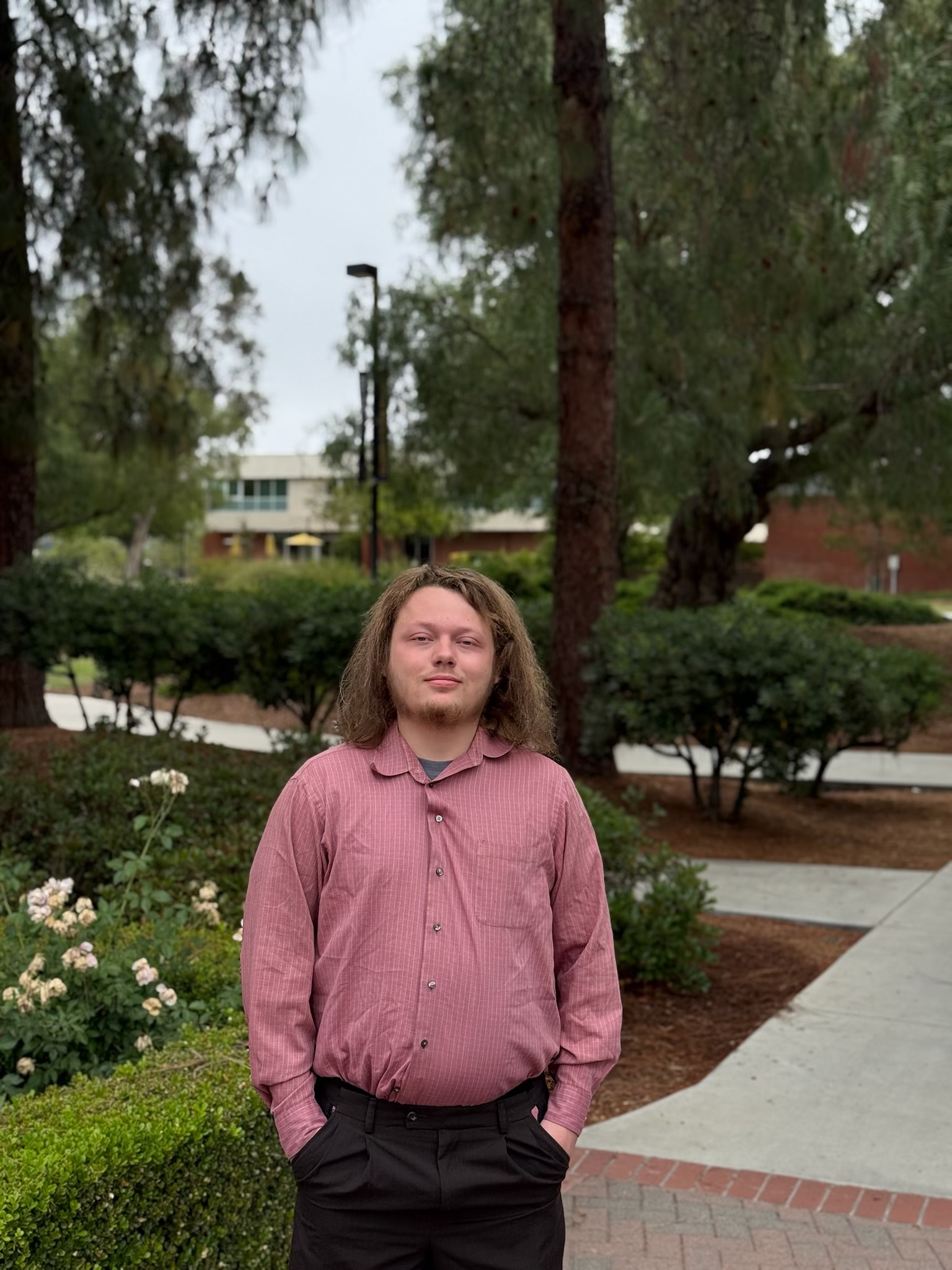
Robert Lewis '26
Major: Psychology
Faculty Mentor: Dr. Shanshan Ma
Research Project:The Exploration of the Cognitive Impact of AI-Generated Videos on Learners
Research Question:This summer, I’m investigating how AI-generated videos compare to traditional recorded lectures in terms of their impact on college students’ learning, engagement, and cognitive workload. My project explores whether these new forms of educational content help or hinder learning.
Importance: This research is important because AI is increasingly being used in education, and we need to understand how these tools affect learners. The results can help educators and institutions make better decisions about using AI in teaching.
Looking Forward: I’m excited to learn how to use neuroscience tools like EEG and eye-tracking in real research. I’m also looking forward to analyzing the data and seeing how new technology influences how we learn.
After Graduation Plans: After graduation, I plan to pursue a PhD degree in neuroscience or behavioral psychology. This research experience is helping me develop the skills and confidence I’ll need to succeed in graduate school and beyond.
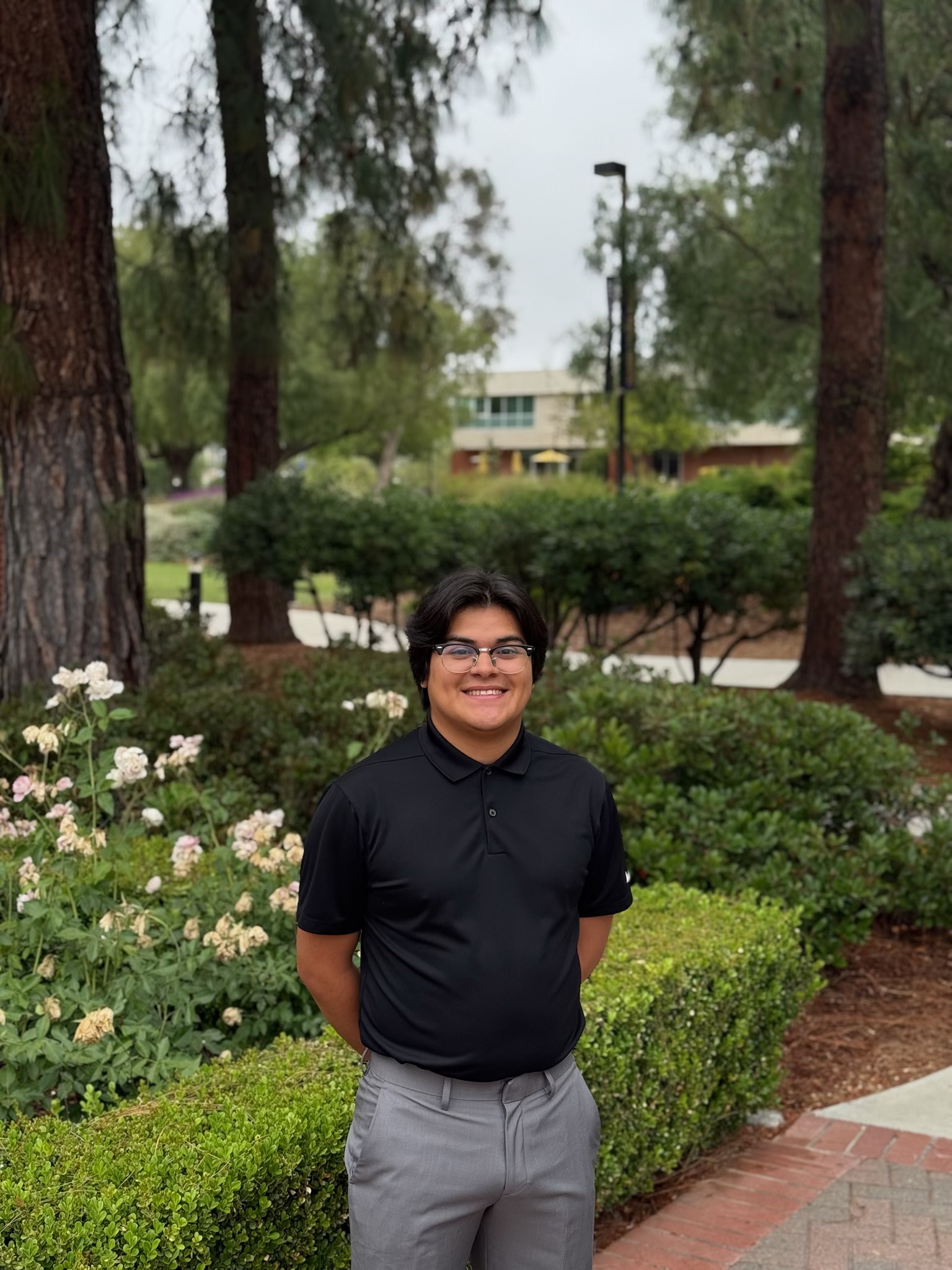
Israel Lozano '26
Major: History Pedagogy
Faculty Mentor: Dr. Brandy Yee
Project Title: Globalizing Ethnic Studies Instruction for Immigrant Students
Research Question: My research this summer is centered on the following question: What instructional strategies do ethnic studies teachers employ to cultivate a culturally responsive ethnic studies classroom that embraces multinational identities?
Importance: With Ethnic Studies becoming a high school graduation requirement for California by 2030, I am excited to potentially offer educators tangible, well-informed recommendations to improve immigrant students' learning experiences in this subject.
Looking Forward: I am excited to engage in lots of reflection on my own vocational development as I conduct this research. As someone who is actively working to become a social studies teacher, I cannot wait to hear directly from veteran teachers on how they design instruction for populations I want to serve in the near future.
After Graduation Plans: After graduation, I intend to earn my teaching credential in social studies and a Master’s degree in education. This research will help me move forward in becoming a scholar-practitioner within my field and becoming the first person in my family to earn a doctoral degree!
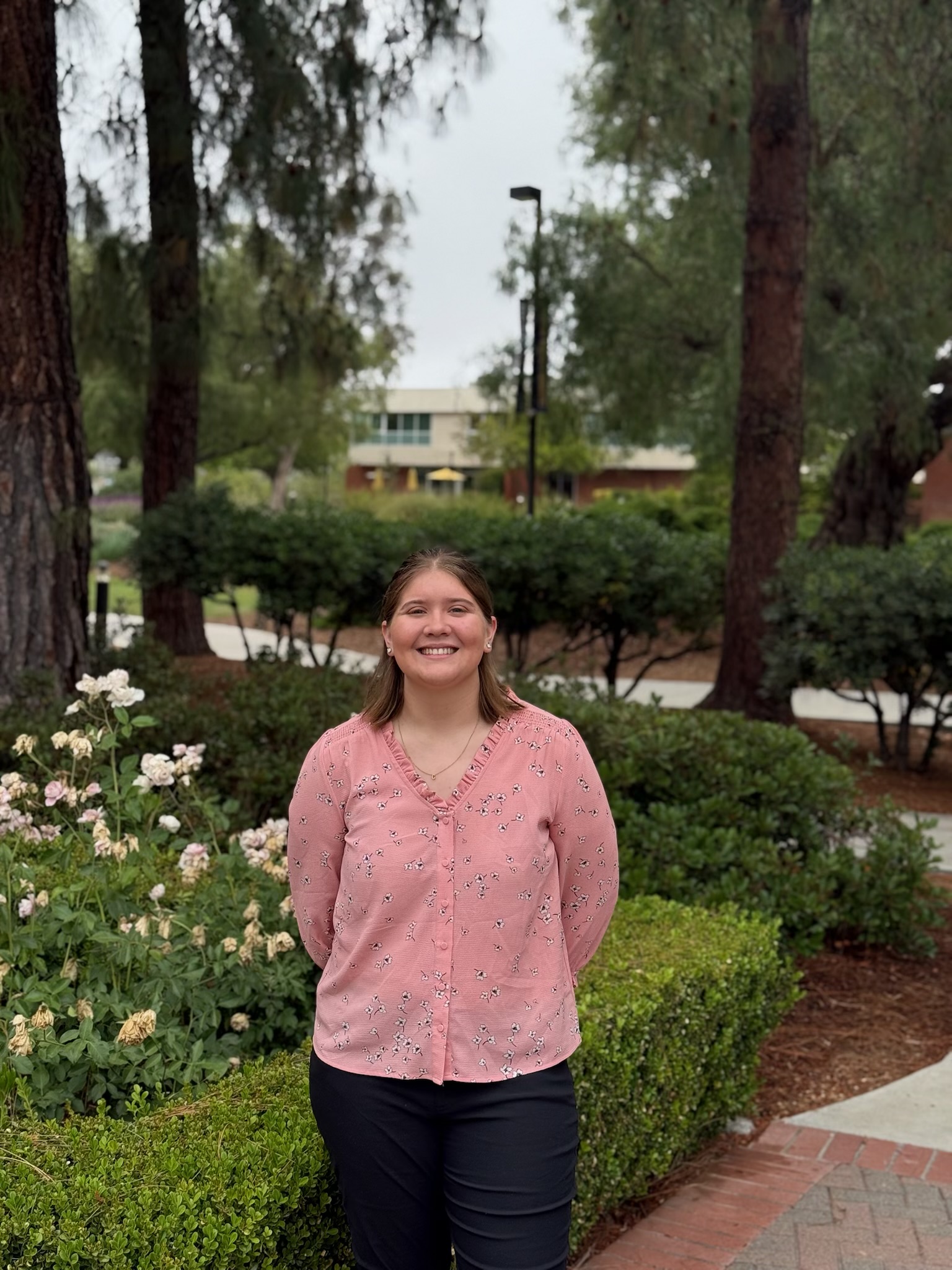
Cora Maldonado '26
Major: Psychology with an Emphasis in Family & Child Development Applications & Law & Criminal Behavior Applications
Faculty Mentor: Dr. Andrea Sell
Project Title: Visual Imagery & Trust in Medical Information
Research Question: My project explores how the medium in which medical information is presented and someone's ability to create mental images affect their comprehension of the information and subsequently their trust or likelihood to adhere to the treatment.
Importance: This will hopefully help change the way the medical field presents information, ensuring that as many people as possible understand their treatment and feel empowered and involved in their medical care.
Looking Forward: I am looking forward to seeing what kind of interaction the ability of visual imagery plays because I feel that making information that is friendly to all visual imagery abilities is something that can extend to many different fields in our world.
After Graduation Plans: After graduation, I plan to attend either medical school or a Ph.D. program in Clinical Psychology. This experience will help me improve my communication skills and develop my ability to communicate information in a more effective manner.
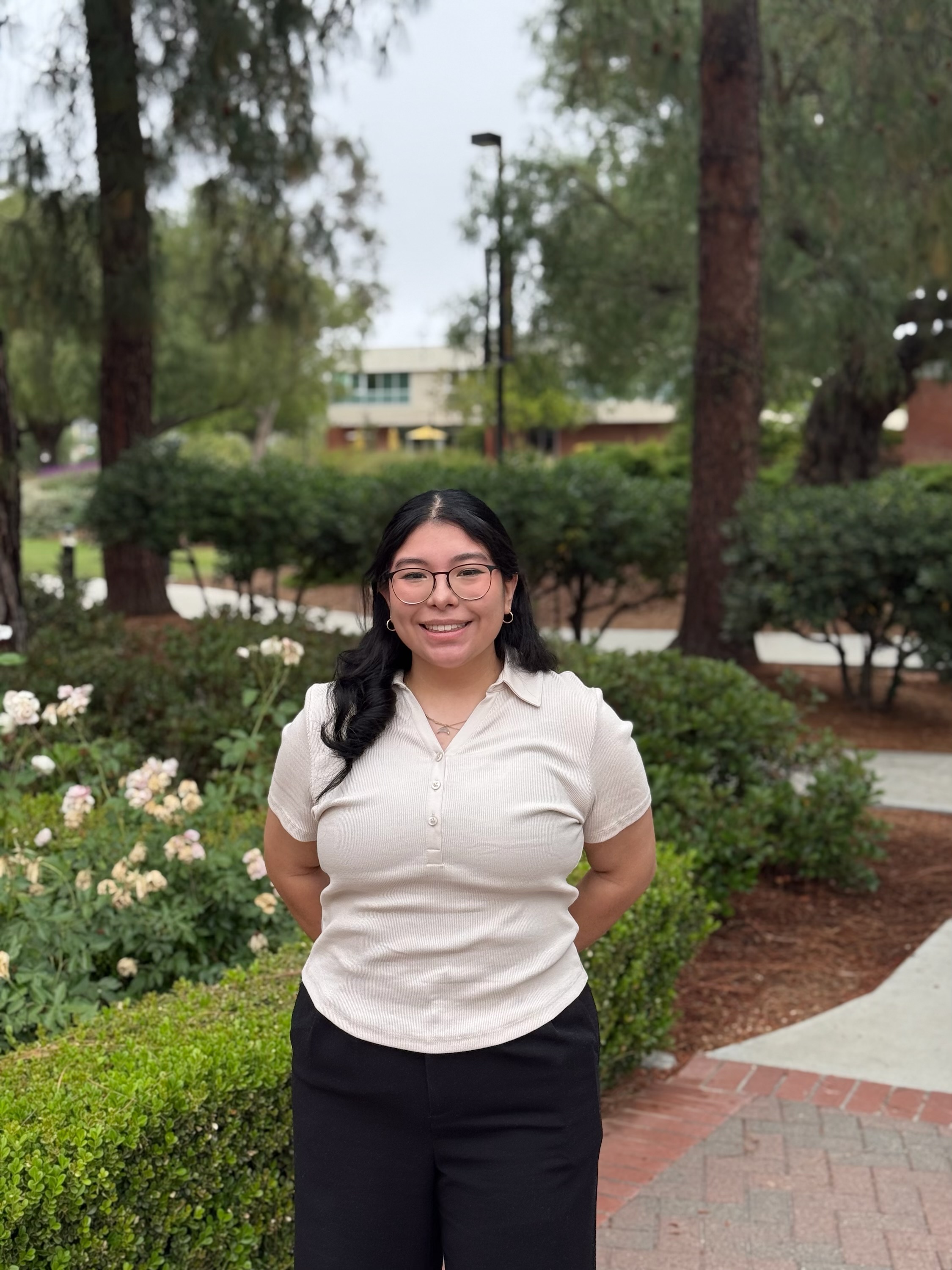
Crisstal Negron '27
Major: Criminology & Criminal Justice & Psychology with an Emphasis in Law & Criminal Behavior Applications
Faculty Mentor: Dr. Jose Torres
Project Title: Challenging the Stigma Behind Parental Incarceration: The Experiences of Latina/o College Students with Incarcerated Parents
Research Question: This study explored the lived experiences of Latina/o students in colleges and universities who have experienced or are currently experiencing parental incarceration. In particular, it examined the role of faculty mentors and program directors at community colleges and universities who work closely with this student population. The research focused on three primary areas: (1) the impact of parental incarceration on Latina/o students’ personal lives, family dynamics, and interpersonal relationships; (2) the ways in which these students navigated and actively resisted the social stigmas, stereotypes, and negative labels associated with their parent’s criminality and incarceration; (3) the role of faculty mentors and program directors in supporting and de-stigmatizing the experiences of Latina/o students with incarcerated parents.
Importance: This research matters because it gives visibility to a marginalized student population that is often overlooked in both education and criminal justice discussions. Understanding their challenges and strengths can inform more inclusive institutional policies, challenge harmful stereotypes, and help create educational environments that uplift rather than exclude. Ultimately, this work pushes for systemic change and social justice through education.
Looking Forward: I am looking forward to connecting with Latina/o within this population and hearing their story, and ultimately providing them a chance for their voice to be heard.
After Graduation Plans: This experience will help me with my future plans as it will provide me with a foundation to keep building on my knowledge using qualitative data and connecting with vulnerable and often overlooked populations.
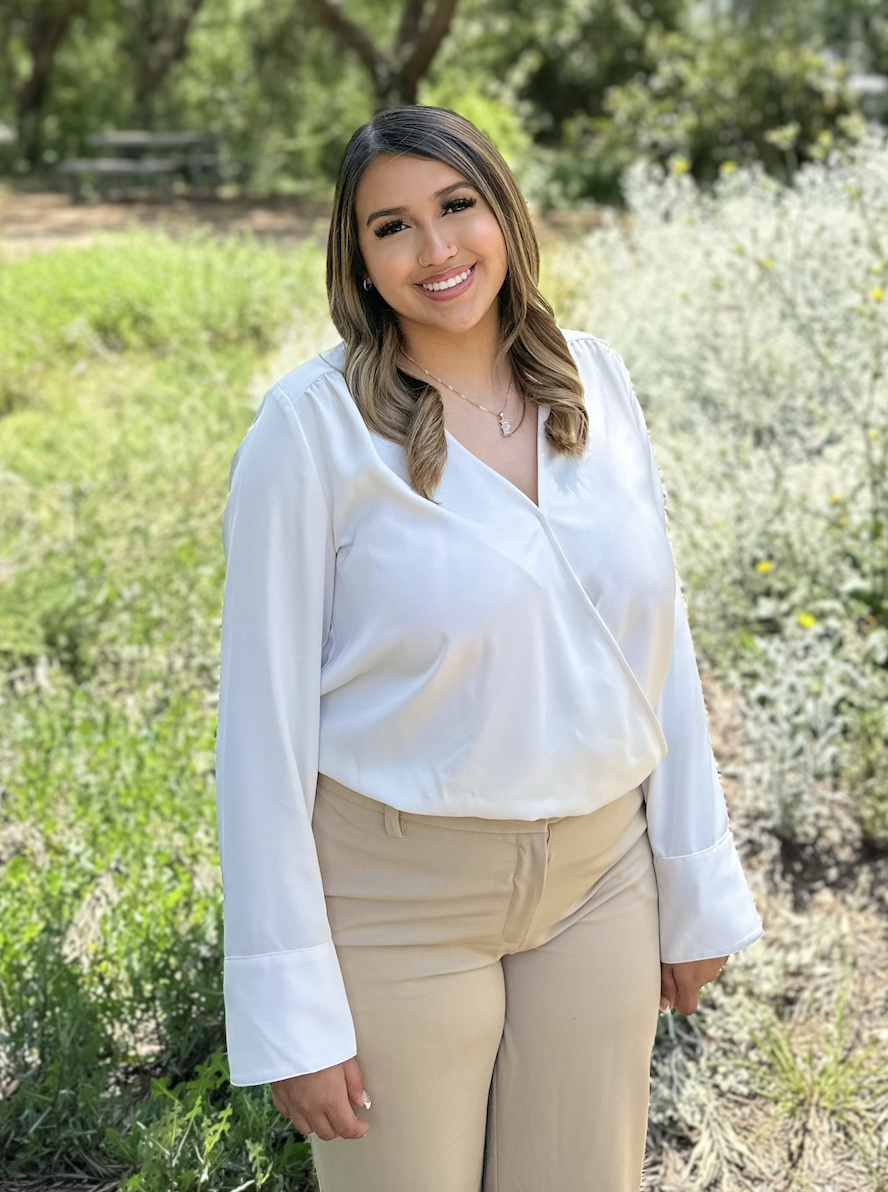
Kassandra Reyes '26
Hometown: Oxnard, CA
Major: Criminology & Criminal Justice & Psychology
Faculty Mentors: Dr. Jose Torres
Research Title: Challenging the Stigma Behind Parental Incarceration: The Experiences of Latina/o College Students with Incarcerated Parents
Research Abstract: “In this study, we examined the experiences of Latina/o college students who have experienced parental incarceration. We interviewed 2 Latina/o college students who had a parent behind bars in a local jail, state prison, or federal prison. We also interviewed 4 community college and university faculty and program directors who worked closely with students who had experienced parental incarceration. We focused on three key areas including (1) the effects of parental incarceration on students' lives, families, and relationships, (2) how these students navigated and challenged the social stigmas, stereotypes, and negative labels associated to their parent’s criminality and incarceration, and (3) the role of community college and university faculty and program directors in helping de-stigmatize and support students who had parents behind bars. In this study, we found that Latina/o college students challenged social stigmas, stereotypes, and negative labels by succeeding academically while in college and by receiving continuous support from faculty mentors and program directors who offered support services to students with incarcerated parents. This study demonstrates the vital role community college and university faculty and staff play in helping students succeed academically and overcome social stigmas, stereotypes, and negative labels associated to their parent's incarceration."
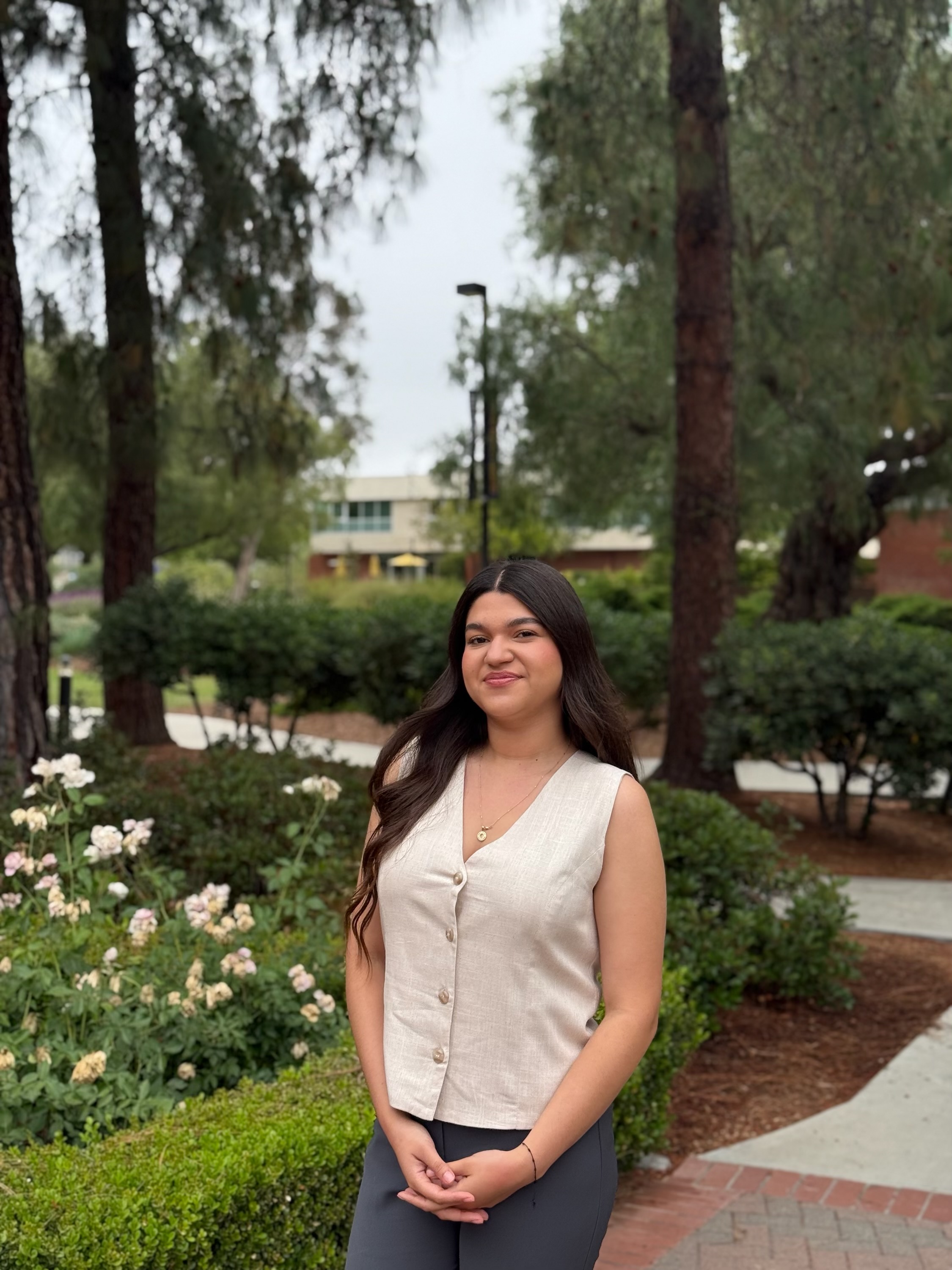
Lupita Silva '27
Major: Psychology & Spanish
Faculty Mentor: Dr. Nicole Talarico
Research Project: The Impact of Sibling Relationships on Mental Health among the Latino Community
Research Question: This summer, I’m investigating how sibling relationship quality in the Latino community impacts individuals' mental health and well-being. Siblings often provide emotional support, guidance and a sense of belonging which all affect mental health. These relationships are crucial to understand especially in Latino communities where familismo is a core value prioritizing families needs above their own.
Importance: This research is important because in the Latino community siblings are a primary
source of support as familismo is a core value. Siblings take on more responsibilities
as some can be caretakers or mentors to younger siblings. These relationships shape
the overall well being and mental health of the individual.
Looking Forward: During this process I’m looking forward to learning more about the influence of siblings especially in the Latino community. I’m excited to be able to learn more about the research methods and create my own survey where the analyzed data and results of my research can potentially be used to help the community.
After Graduation Plans: After graduation I plan to attend graduate school to pursue either a Doctorate in Occupational Therapy or a Masters in Marriage and Family Therapy. This research experience will help my future goals by expanding my understanding of the cultural factors that affect mental health especially in underrepresented communities. This will allow me to be able to provide the care needed and build the trust with those that I hope to serve.